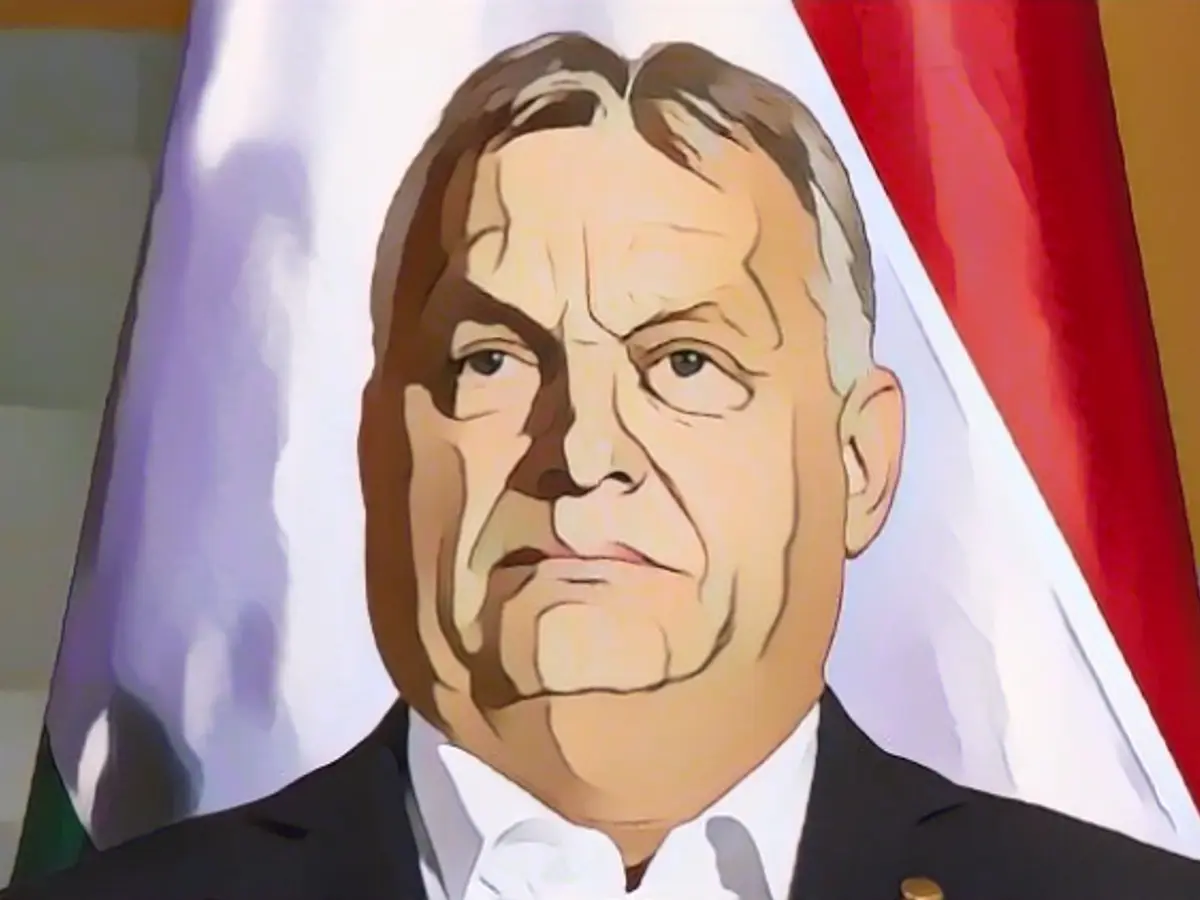Orban wants to secure policy with populist survey
Listening to the people is important. But if you ask the country's citizens, it depends on how. Hungary's government is trying to gain support for its own plans with a survey. The way the questions are posed, the result is unlikely to bring any surprises.
The right-wing conservative government of Prime Minister Viktor Orban in Hungary has launched a survey to "protect" the country against alleged EU policies. Among other things, it deals with migration and Ukraine's possible accession to the EU. For each of the questions, respondents have only two alternatives to choose from: either to support the Hungarian government's stance or to choose an alleged EU line.
"Brussels wants to set up ghettos for migrants in Hungary. What do you think?" is one of the eleven questions in the form published on the government's Facebook page for the "National consultation in defense of our sovereignty". In addition to migration policy, the new consultation also deals with the war in neighboring Ukraine, with which Hungary has a tense relationship. Among other things, the EU line is that "Brussels wants to give Ukraine more weapons and money" or "Brussels wants Ukraine to join the European Union".
The last survey of this kind in 2022 was about EU sanctions against Russia. The survey is not legally binding. However, Prime Minister Orban said last week that his government could see its policy confirmed by the questionnaire. Based on this, it could continue to "maintain" its conflicts with Brussels in the area of migration. With regard to migration, Orban declared at the EU summit in Brussels at the end of October: "We don't want to spend money on migrants or on Ukraine."
Budapest warns against Ukraine joining the EU
Orban, who has been in power since 2010, has been at loggerheads with the EU Commission on numerous issues for years. He refuses to accept the EU sanctions policy against Russia due to the war in Ukraine and continues to rely on an understanding with Moscow. Although Hungary is an EU and NATO member, it is critical of Ukraine's possible accession to the EU. Budapest recently warned the EU Commission against opening accession negotiations with Kiev.
In addition, the country - like Slovakia after the change of government at the beginning of October - is blocking billions in new aid from the European Union for Ukraine. At the EU summit, both states recently voiced harsh criticism of a planned aid package for the country amounting to 50 billion euros.
According to diplomats, Orban wants to use his blockade to force the release of 13 billion euros for Hungary, which the EU has frozen in the dispute over the rule of law in the country.
- Despite the ongoing tension with the EU over migration policies and Ukraine's potential EU membership, Prime Minister Viktor Orban's government in Hungary continues to seek public support through surveys, such as the recent "National consultation in defense of our sovereignty" on Facebook, which includes questions about migration and EU support for Ukraine.
- Following the release of the survey results, Orban stated that his government's stance on migration and conflicts with the EU could be further justified, potentially allowing for continued opposition against EU policies, as in the case of EU sanctions against Russia, which Orban opposes.
- In addition to Hungary, neighboring Slovakia has also taken a critical stance on Ukraine's potential EU membership, echoing Orban's sentiments, by blocking new EU aid for Ukraine, further complicating the EU's plans for Kiev's accession and raising concerns about Russian influence in the region.
- In response to EU sanctions imposed on Russia over the conflict in Ukraine, several EU member states, including Hungary and Slovakia, have faced calls for their own sanctions due to their close ties with Russia, with surveys and public sentiments in Hungary, as demonstrated by the recent "National consultation," potentially influencing Orban's response to EU pressure regarding migrant support and Russian relations.
Source: www.ntv.de








